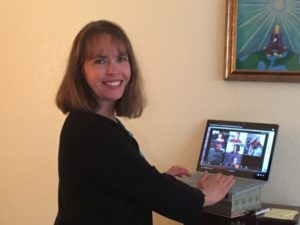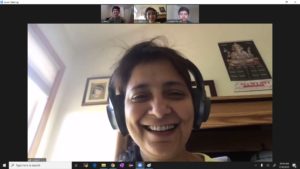
In late April, during the first month of remote learning at Colorado State University, the Department of Computer Science became aware that a number of students were losing their internships due to uncertainty caused by COVID-19.
Craig Partridge, chair of the department, sent out an email asking that students struggling to secure an internship for the summer let the department know.
“This summer is a critical time, particularly for juniors,” said Partridge. “It’s your chance to develop your resume and it’s your chance to get to know a company or an organization. We wanted to try and figure out how bad the internship problem was, because we figured it would affect their job prospects upon graduation.”
In one week, 43 students reached out. While their situations varied, it became clear that extra steps had to be taken to secure valuable positions for as many students as possible.
“Everyone will understand that this summer was a little funny,” said Partridge. “[Prospective employers] don’t necessarily expect you to have an internship at a company, but the fact that you had an internship somewhere doing something that you can talk passionately about is tremendously important.”
Immediately, it was all hands on deck. The department looked to create more internships at CSU and tried to connect students with companies that were still hiring.
“We encouraged our professors to take a look at their research projects and see if they could squeeze in another internship or two,” said Partridge.
With help from the state-funded Colorado Center for Cyber Security, and additional funding from the National Science Foundation Research Experience for Undergraduate Supplements, the department managed to create more than 10 new positions.
Amy Cailene, career education manager for the College of Natural Sciences in the university’s Career Center, identified internships, reached out to companies still hiring, met with students individually, and hosted a webinar specifically for international graduate students.
“Landing an internship is one of the top four factors to students landing full-time jobs upon graduation,” said Cailene. Even though the internships were all converted to online, remote positions, Cailene explained that students could still leverage their work this summer into a great resume builder.
“Even highlighting that they [worked] virtually, that they had to develop this adaptability and flexibility, and the willingness to get the job done even if the circumstances aren’t ideal, is something that they can use to their advantage in a future job search,” she said.
Elisa Cundiff, the academic success coordinator for computer science, sent out a weekly newsletter with updates on which internships were still available.
“I was concerned that students might be hitting a point of paralysis,” said Cundiff. “All of this uncertainty can really cause people to turn inwards and give up, so we started pushing out stories of current students with internships in our newsletters with links to current internships at those same companies.”
Without collecting data on the success of their efforts, Partridge’s sense is that “we scrambled and managed to place more than half of the students, either directly or indirectly, in internships for the summer that they wouldn’t have otherwise had.”
Students doing well
The students have been doing very well, according to Indrakshi Ray, a professor in the Department of Computer Science. “Some of these students are superstars and I am very excited to have them working with me.”

Videep Venkatesha, a sophomore computer science major and current intern with Ray, had initially intended to return to India over the summer. He was to tutor high school students in C++ and had an interview lined up for an internship. When COVID-19 hit, he realized he had to stay in the U.S. and his plans changed quickly.
“I emailed Elisa regarding my situation,” he said. “I had also looked into her newsletters but most of the internship positions that were mentioned in the newsletter required a U.S. citizenship. Elisa put me in touch with Dr. Ray who immediately gave me a position in her research team based on my academic performance,” Venkatesha said. “I am grateful to Dr. Ray for giving me an opportunity and letting me make the most of my situation. I appreciate the efforts put forth by Elisa and the computer science department in looking out for its students in these unpredictable times. It is comforting to know that the department cares for us and does everything it can to ensure the growth of its students.”
In a massive group effort, the computer science department listened directly to their student body and filled a vital need within their community. While it wasn’t perfect, the department proved how much they care about their students’ success.
The Department of Computer Science is a part of CSU’s College of Natural Sciences.